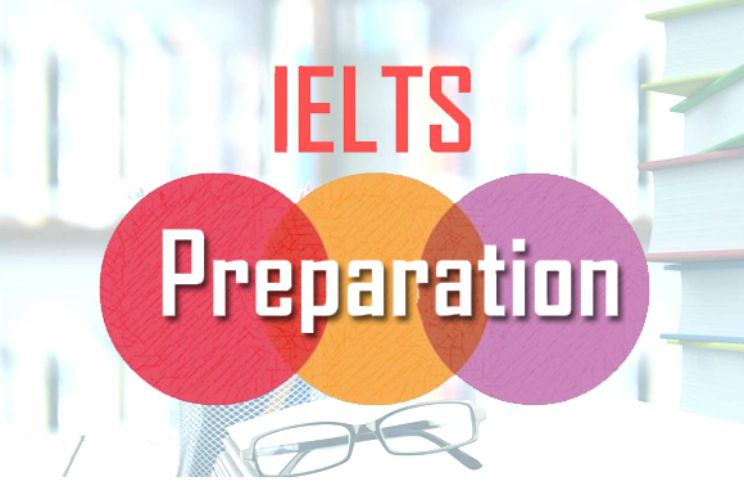by | Sep 10, 2020 | Admission Test, Advanced English, Basic English, BCS, Grammar, HSC, Skill Development
আমাদের কিছু Common Mistake প্রায় সময় অনেকেই ভুল করি Assertive sentence এবং Imperative sentence নিয়ে। তবে sentence নিয়ে বিস্তারিত আলোচনা করব না এখন।
আচ্ছা আমরা প্রথমে কিছু উদাহরণ দিয়ে শুরু করি।
𝑖) 𝑇ℎ𝑎𝑛𝑘 𝑌𝑜𝑢.
𝑖𝑖) 𝑇ℎ𝑎𝑛𝑘 𝑡ℎ𝑒𝑚.
𝑖𝑖𝑖) 𝑤𝑖𝑠ℎ 𝑦𝑜𝑢 𝑏𝑒𝑠𝑡 𝑜𝑓 𝑙𝑢𝑐𝑘.
𝑖𝑣) 𝑤𝑖𝑠ℎ ℎ𝑖𝑠 𝑏𝑒𝑠𝑡 𝑜𝑓 𝑙𝑢𝑐𝑘.
এই উদাহরণ গুলো কে কোন sentence? যদি উত্তরটি আপনি আগে থেকেই জেনে থেকেন তাহলে কমেন্ট বক্সএ “Yes” লিখে কমেন্ট করুন।
চলেন দেখা জাক উপরের উদাহরণ গুলো কোন sentence এর অন্তর্ভুক্ত বা কেনই।
𝐒𝐭𝐫𝐮𝐜𝐭𝐮𝐫𝐞-𝟏: verb + you= Assertive sentence.
𝐒𝐭𝐫𝐮𝐜𝐭𝐮𝐫𝐞-𝟐: verb + you(ব্যতীত অন্য object)= imperative sentence.
সুতরাং আমরা কোন দ্বিধা ছাড়াই বলতে পারি উপরের উদাহরণ গুলোর মধ্যে i), iii) হলো assertive sentence এবং ii),iv) হলো imperative sentence.
এতক্ষণ কষ্ট করে সঙ্গে থাকার জন্য ধন্যবাদ😃
Posted by:-© Rezaul Karim Sagar
by | Sep 10, 2020 | Advanced English, Grammar
কেউ যদি English ভালোভাবে বুঝতে ও সুস্পষ্টভাবে বলতে চায় তবে তাকে English Language-এ থাকা কয়েকটি নীতিকে বেশ ভালো ভাবে গুরুত্ব দিতে হবে, সেগুলো হচ্ছে:
1. WORD ORDER.
2. PUNCTUATION.
3. TENSE & ASPECT.
4. DETERMINER.
5. CONNECTOR.
লেখার বা বলার ক্ষেত্রে একই বা ভিন্নভাবে এই নীতি গুলোর প্রয়োগ হয়ে থাকে। ইংরেজির সঠিক ব্যবহার এই নীতিগুলোকে সঠিকভাবে Observation এর মাধ্যমেই সম্ভব।
⚫WORD ORDER:
কতো গুলো শব্দের সমষ্টি হচ্ছে বাক্য।তাই বলে পরপর কতো গুলো শব্দ বসিয়ে দিলেই তা বাক্য হয়ে যায় না।একটি analytic language হিসেবে ইংরেজী ভাষা দুইটি শব্দের মধ্যকার সম্পর্ক বোঝাতে প্রচুর শব্দের ব্যবহার করে না। শব্দের মধ্যকার সম্পর্কটি মূলত বাক্যটির Word order দ্বারা নির্ধারিত হয়।
Word order হচ্ছে syntax-এর মূল term।
ইংরেজী ভাষায় sentence making-এর most basic fundamental word order হচ্ছে –
প্রথমে Subject, তারপরে Tense অনুযায়ী Verb,তার পরে Object, etc সবার শেষে যদি থাকে।
কোন বাক্যের word order যদি আমরা বদলে ফেলি তবে বাক্যের অর্থও অনেক ক্ষেত্রে বদলে যাবে।
Example:
◼ Alo is reciting a poem written by a small girl Ariya.
এবারে যদি আমরা এ বাক্যের word order change করে দেই-
◼ A small girl Ariya is reciting a poem written by Alo.
এখানে আমরা লক্ষ্য করলে দেখতে পাবো যে, sentence-টির subject-কে Object করায় তার অর্থ পুরোটা বদলে গেলেও বাক্যটি এখনো grammatical, এখনো বাক্যটির একটা সুস্পষ্ট meaning আছে।
কিন্তু,অনেক ক্ষেত্রেই word order বদলে ফেললে যে বাক্যটি পাওয়া যায় তার কোন সুস্পষ্ট মানে থাকে না।
◼ Girl Alo Ariya written small poem a is by reciting.
এ বাক্যটিতে উপরের দুইটি Example এ যে সমস্ত শব্দ ব্যবহার করা হয়েছিলো ঠিক ততোগুলো শব্দ ব্যবহার করা হলেও এই sentence-টির word order ঠিক না থাকায় তার কোন যথাযথ মানে বুঝা যাচ্ছে না।
অর্থাৎ,কোন sentence-কে যথাযথভাবে Interpret করার ক্ষেত্রে word order maintain করা খুবই গুরুত্বপূর্ণ।
ধন্যবাদ।🙂
Writer: Tasnuba Tasnim Saki

by | Sep 10, 2020 | Advanced English, IELTS, Life Style, Skill Development, Spoken
Top IELTS Listening Tips –
Before the test
1. Improve your general listening skills – The goal of IELTS Listening section is to test your listening skills. Don’t use practice tests to improve your score: it’s not enough! They will help you to become familiar with the test, but won’t much improve your listening abilities. It is much more effective to do various listening exercises, listen to general listening materials (radio reports, TV-shows, documental programs etc) and only after that do IELTS Listening practice tests.
2. Polish your topic vocabulary – Section 3 is almost always about education. For example, students and a tutor talking about an assignment. Learn all the vocabulary you can about studying at university. This way you will understand this section better.
On the test
3. Word types – Skip over the questions and decide which type of word fits in each gap. Is it a noun, verb, adverb or adjective? Write ‘N’ for noun, ‘V’ for verb and so on. This will help you to focus on the specific word forms while listening.
4. “Plug in” the situation – Try to get an idea of the situation. Before each part you will be given a short introduction: ‘Now, you will hear a dialogue between…’ or ‘you will hear a lecture on…’ This information is not written on the question paper, so be attentive. Note: who are the speakers, why are they speaking and where are they. This will make understanding the rest of the recording much easier.
5. Don’t loose attention – Remember, you will only hear the audio once. So if you didn’t hear some words and passed over some questions, don’t worry! Leave them blank and focus on the actual part. Review those questions at the end of the section, otherwise, you will only miss more questions and tangle in the recording. You will need to read, write and listen all at the same time.
6. Watch out words-indicators – Listen for words-indicators, such as however, but, then, finally. They help you to anticipate what the speaker will say.
7. Don’t write answers too quickly – A lot of students fall into this trap: as soon as they hear the needed information, they take it for the correct answer. But sometimes this information is repeated or corrected further in the section.
8. Check for silly mistakes – After each section you have 30 seconds to check your answers. It is important to check spelling, plurals and word forms. Remember that only correctly written answers will gain points.
9. Transfer answers accurately – At the end of the listening test you will have 10 minutes for transferring your answers into the answer sheet. And quite often students get confused in the numeration! As you write down your answers, check that they fit into the correct numbered space. In other words, make sure that answer for question 7 goes into space number 7.
10. Don’t leave any blank answers! – You won’t lose marks for incorrect answers, so even if you don’t know the answer it is better to write something in the answers box. Read the question again and make a guess!
Posted by: Rezaul Karim Sagar
by | Sep 10, 2020 | Advanced English, Grammar, Life Style, Skill Development, Spoken
Secret Spoken Structure (more…)
by | Sep 10, 2020 | Advanced English, Skill Development, Spoken
Secret Spoken Structure
Topic: Was going to be
কেউ কিছু একটা হতে যাচ্ছিলো – এধরনের Sentence-এর ক্ষেত্রে “was going to be” ব্যবহৃত হয়
example: আমি প্রকৌশলী হতে যাচ্ছিলাম=
I was going to be an engineer.
Structure: Subject + was going to be + object.
more examples:
1.সে গায়িকা হতে যাচ্ছিলো
= She was going to be a singer.
2.তুমি লেখক হতে যাচ্ছিলে
=You were going to be a writer.
3.তারা ধনী হতে যাচ্ছিলো
=They were going to be rich.
Instructor: Tahmid Hasan
Posted By: Rukaiya Akter Hafsah
by | Sep 10, 2020 | Advanced English, Spoken
ভ্রমণের ইংরেজী কী?
Travel/Journey/Trip/Voyage/Tour নাকি Visit?
উপরের সবগুলো শব্দের অর্থ ‘ভ্রমণ’ হলেও এদের ব্যবহারে সুক্ষ্ম পার্থক্য রয়েছে। আজকে আমরা এদের সঠিক ব্যবহার সম্পর্কে জানবো।
⚫TRAVEL: এই শব্দটি কখনো Verb আবার কখনো Noun হিসেবে ব্যবহৃত হয়। Noun হিসেবে শব্দটি সাধারণত স্বল্পদূরবর্তী বা দূরবর্তী এক জায়গা থেকে অন্য জায়গায় যাওয়াকে বোঝায়।
পায়ে হেঁটে বা কোন যানবাহনে চড়ে, ব্যাগপত্র সমেত বা ব্যাগপত্র ছাড়া Round/one way trip-এ Travel হতে পারে।
Example:
◼ I traveled 21 km yesterday. (Verb)
◼ The birds are traveling south for the winter.
⚫ JOURNEY : কোন যানবাহনে করে এক জায়গা থেকে অন্য জায়গায় ভ্রমণের কাজই Journey। এটা মূলত Travel-এরই একটা অংশ। Journey রোজকার ঘটনাও হতে পারে।
Example:
◼We go from Sylhet to Sunamganj then back again.
এখানে দুইটি Journey রয়েছে।
>Sylhet to Sunamganj.
>Sunamganj to sylhet.
⚫ TRIP : কোন জায়গায় যাওয়া এবং ফিরে আসার সমস্ত process-টাই হচ্ছে Trip।
◼We go from Sylhet to Sunamganj then back again.
বাক্যটিতে
Sylhet to Sunamganj
Sunamganj to Sylhet
দুইটি Journey-এর সমন্বয়ে একটি Trip হয়েছে।
অর্থাৎ, A trip = more than one journey.
⚫ VOYAGE : কোন জায়গা থেকে খুব বেশি দূরবর্তী জায়গায় যাওয়া (মহাকাশ বা সমুদ্রে) হচ্ছে Voyage।
Example:
◼ His voyage to the sea may take 3 to 5 days to reach his destination.
⚫ TOUR : Tour হচ্ছে ধারাবাহিকভাবে বেশ কয়েকটি স্থান পরিদর্শন সহ একটি long journey।
এতে থাকে একটি সুসংগঠিত দল এবং নেতৃত্ব।
Example:
◼ We were taken to a tour of school.
◼During Jungkook’s tour in India he served a tour of care in Bangladesh.
⚫VISIT : Visit মানে হচ্ছে কোথাও যাওয়া এবং সেখানে গিয়ে কারো সাথে বা কোন জায়গায় সামাজিকতার খাতিরে,আগ্রহে,প্রয়োজনে বা ব্যবসার তাগিদে কিছু সময় অবস্থান করা।
Example :
◼ If you’re not okay with your Math problems, visit to your teacher.
এবারে আমরা পার্থক্য গুলো সঠিকভাবে বুঝতে পেরেছি কি না সেটা বুঝার জন্য কিছু Exercise করবো-
1. I’m going to a bussiness _____ in America.
a)tour
b)trip
c)travel
d)journey
e)voyage
2. Zara going to a study ____ from her school.
a)tour
b)trip
c)travel
d)journey
e)visit
3.A _____ around the world often took four or five years.
a)tour
b)trip
c)travel
d)journey
e)voyage
4.I have to _____ 19 Km everyday.
a)tour
b)trip
c)travel
d)journey
e)visit
ধন্যবাদ।
Instructor : Tahmid Hasan.
Writer : Tasnuba Tasnim Saki.

